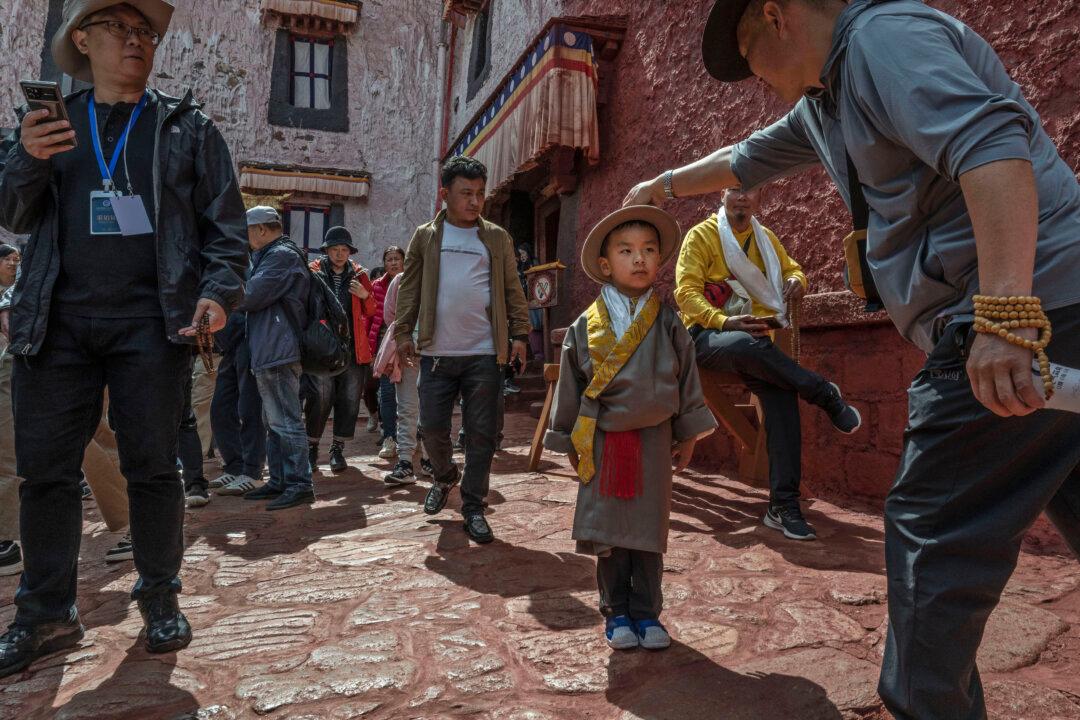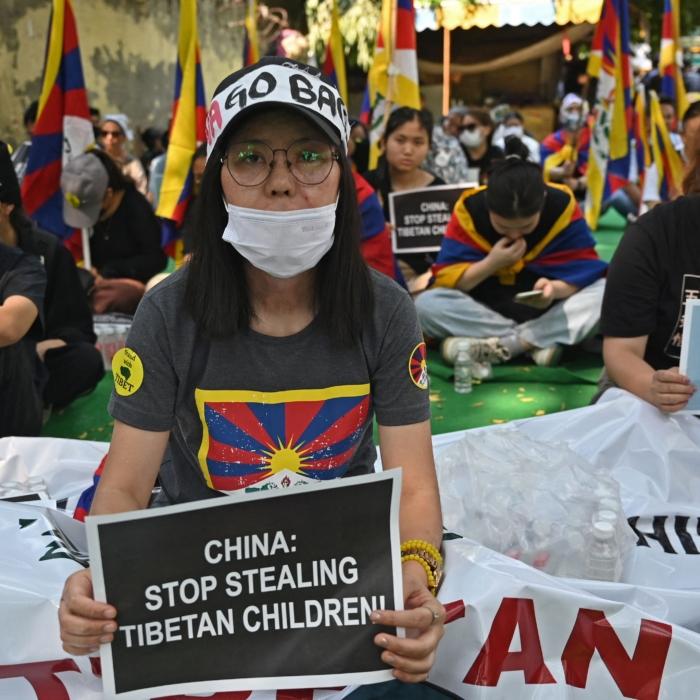Two-thirds of Australians prioritise human rights over Australia’s trade with China, a recent poll reveals.
“The Chinese Government has been found to violate the human rights of the people of Hong Kong, Tibet, Uyghurs, and is currently being investigated by the U.N. for cases of forced labour in Tibet and Uyghur areas,” reads the question of an online poll conducted by Essential Research during Aug. 16 to 20.
“The Australian Government is pursuing a trade re-engagement with China following a period of tariffs affecting imports and exports.
“Which of the following is closest to your view on whether Australia should re-engage in trade relations with China, given these human rights abuses?”
Around half (48 percent) of Australians think that Australia should re-engage in trade relations with China only if conditions for human rights abuse accountability are set in place.
Younger people (aged 18 to 34) are more likely to hold this view than people aged 55 and over (53 percent to 46 percent).
Putting these conditions into any trade negotiations was the most popular answer across all states, and other demographics. In addition, over half of Labor, Coalition, and Greens voters would want human rights accountability included in upcoming negotiations.
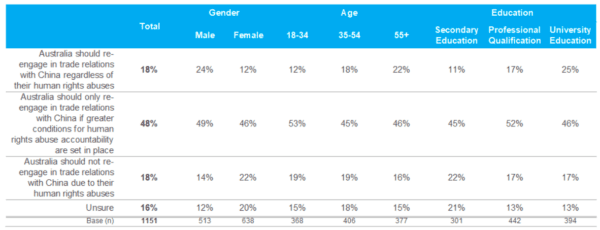
About one in five (18 percent) of Australians surveyed said they would not support a resumption of trade relations because of China’s human rights failings. Women and minor party voters are more likely to hold this view (22 percent and 30 percent, respectively).
Another one in five participants (18 percent) think Australia should re-engage in trade relations with China despite their human rights abuses. Men, older people (aged 55 and over), and those with a university education are more likely to hold this view (24 percent, 22 percent and 25 percent, respectively).
Tibet Lobby Day
The poll, based on 1,151 respondents, came as Tibetans from across Australia met in Canberra on Sept. 4 for the 12th annual Tibet Lobby Day organised by Australia Tibet Council.Tibet Lobby Day empowers Tibetans in Australia to speak directly to Australian Parliamentarians about the ongoing human rights violations in Tibet.
“These results come as no surprise to me,” Zoe Bedford, Executive Officer of Australia Tibet Council, said ahead of 2023 Tibet Lobby Day.
Children Forced Assimilation at Residential Schools
Last week, the U.S. Government imposed visa sanctions on Chinese officials responsible for pursuing forced assimilation of children in Tibet.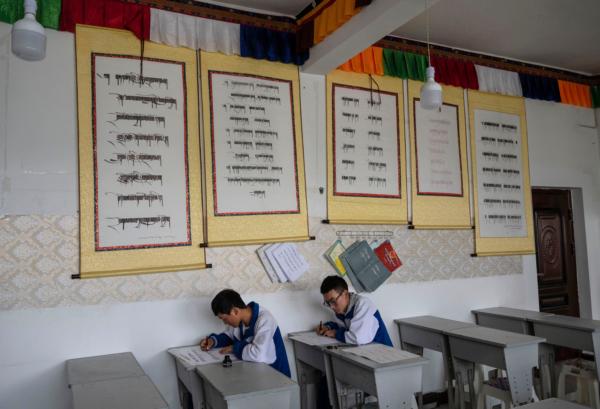
Around a million children of the Tibetan minority were being affected by communist China’s policies aimed at assimilating Tibetan people culturally, religiously, and linguistically through a residential school system, according to the U.N. experts.
Australian Government Called for Action
Sonam Choedon, a Canberra-based Tibetan community leader and first-time delegate, joined 15 fellow delegates in Canberra today representing the Tibetan people.“Today we are calling on Prime Minister [Anthony] Albanese and allied G20 leaders to release a robust joint statement of concern supporting the U.N. investigation into the separation of up to one million Tibetan children from their families and uphold the current constitutional and statutory protections for Tibetan language promotion and preservation,” Ms. Choedon said.
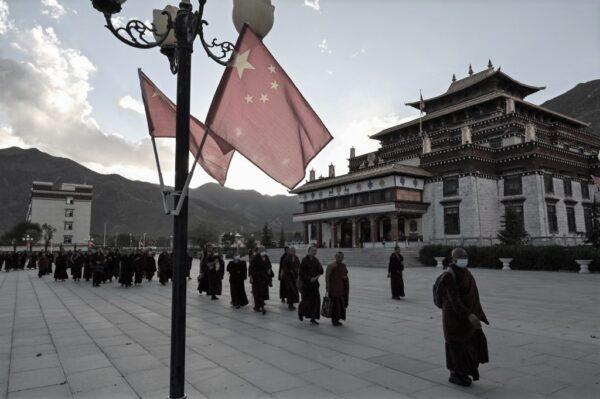
“It really helps to know that the government’s decision to resume trade with China is unpopular and that most Australians actually want more human rights accountability in China—that they value this more than trade.
Foreign Minister: ‘Distubring and Deeply Concerning’
Australian Foreign Minister Penny Wong said the government had raised Tibet’s human rights issue at numerous diplomatic levels about “the erosion of rights and freedom.”Senator Wong said reports of children being separated from their families were disturbing and deeply concerning, and that Beijing’s crackdown amounted to “excessive security measures.”
“What we can do is to advocate and we are seeking to do that,” she told parliament on Sept. 4.
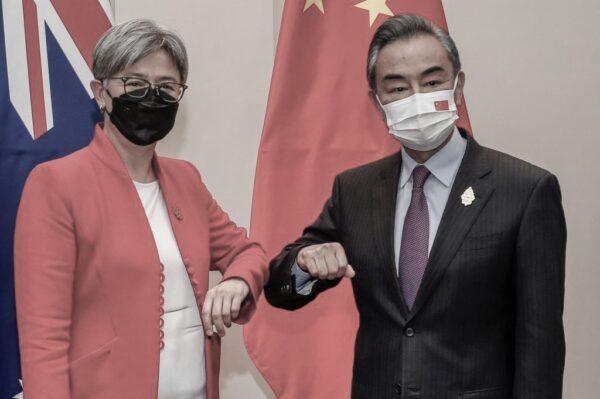
Senator Wong said the attorney-general was working through a review of anti-slavery legislation and the government would respond in turn.
“I do not think there is anyone in Australia who would advocate or believe that it is acceptable for us to profit from forced labour,” she said.
